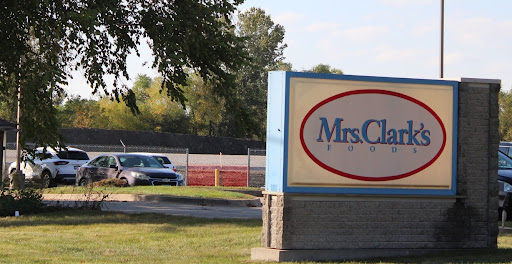New affordable housing model planned in Central Iowa

Kathy A. Bolten May 23, 2025 | 11:02 am
4 min read time
934 wordsAll Latest News, Housing, Nonprofits and Philanthropy
A community land trust, whose goal is to provide long-term affordable housing in communities, is expected to fully launch in Central Iowa by late 2025 with initial work underway to acquire properties.

“Ultimately, the land trust is just another tool in the community’s toolbox that allows permanent affordability,” said Carrie Woerdeman, executive director of Home Inc., a nonprofit whose mission is increasing homeownership opportunities for residents in Central Iowa.
A workforce housing study released in mid-2019 showed that Polk County needed to add more than 55,000 new housing units by 2038 to accommodate Central Iowa’s expected population. Owner-occupied housing made up 60% of the needed new units, the study said.
Following the study’s release, a community group began studying the feasibility of creating a land trust. With support from the city of Des Moines, a consultant was hired and an advisory committee was formed. The committee recommended the formation of the Central Iowa Community Land Trust. So far, the Central Iowa trust has adopted bylaws and articles of incorporation and is in the process of finalizing its nonprofit status.
Dozens of affordable housing units have been added in Central Iowa in recent years, many through the use of tax credits or city incentives. Typically, those units are rented at affordable rates only during the duration the incentives are in place, Woerdeman said. When the incentives expire, the units usually are rented at market rates.
“In my mind, affordable housing is a bucket,” Woerdeman said at a recent housing symposium. “We feed affordable units into the top of the bucket. At the bottom of the bucket there is a hole where affordable units are coming out.”
Community land trusts are a way to diminish the hole’s size, she said.
An explanation of land trusts
Community Land Trusts, or CLTs, are nonprofit groups that acquire and manage land and buildings as a way to provide lasting affordable housing in a community. The first known land trust in the U.S. was created in 1969 in southwest Georgia to help Black farmers secure access to land, according to Brookings Institution, a Washington, D.C.-based think tank.
The U.S. now has about 225 community land trusts that can be found in rural, suburban and urban areas, according to Grounded Solutions Network, a nonprofit group that helps create affordable housing in communities across the country. The most common CLT land use is housing. However, the model can also be used for retail, office and multifamily properties, according to the Washington, D.C.-based group.
CLTs buy existing homes or build new ones using one-time private or public monies. The land trust sells just the house to a homebuyer who qualifies for a mortgage. The CLT holds the land in a trust. When the homeowner wants to move, the home must be sold to another qualified buyer. The home seller will be able to get a predetermined amount of equity out of the sale, which is managed by the CLT.
The Central Iowa Community Land Trust will likely have a 99-year lease on properties that includes a restrictive covenant requiring homeowners to be income qualified, Woerdeman said.
The land trust will focus on serving families whose annual income is at or below 80% of the area median income, Woerdeman said. For a family of four, that is $91,600, according to a federal housing agency.
Next steps for Central Iowa trust
The initial service area for the Central Iowa Community Land Trust will include the cities of Des Moines, West Des Moines and Waukee and all of Polk County. Other area communities will be contacted about being part of the trust, Woerdeman said.
The trust has formed several committees to develop property acquisition strategies, policies and procedures, and marketing and communication plans.
In the coming weeks, the trust will likely hire a program manager who could eventually become its executive director, Woerdeman said. Home Inc. will provide contracted staffing and back office support to the trust as it becomes established.
The first property in the land trust will most likely be a house built by Home Inc. using funds the nonprofit has been awarded, Woerdeman said. “There won’t be an initial cost to the land trust because we’ll just donate the land to the trust and sell the home to the homebuyer.”
Eventually, the land trust will need to secure funding through grants and other means, she said. The land trust will need money to buy properties, help potential homeowners with down payments and to pay a staff, which initially will include one or two people. The trust’s board hasn’t yet set an annual budget.
A long-term goal is for the trust to operate independently and be overseen by a board whose members include land trust residents, representatives of participating governments, and members of the general public who live in the service area, Woerdeman said. When the trust owns 100 to 150 properties, it will likely be able to operate independently, she said.
Homeowners will be able to make improvements to their houses and will be required to maintain the property.
“We want people living in habitable conditions,” Woerdeman said. “The other intent of the land trust is to add value to the community. We want the market values of the [properties] to increase so that owners are experiencing appreciation in the value of their property. … The overall net effect should be very positive for property values in a neighborhood.”
More online: To learn more about community land trusts, click here.

Kathy A. Bolten
Kathy A. Bolten is a senior staff writer at Business Record. She covers real estate and development, workforce development, education, banking and finance, and housing.










